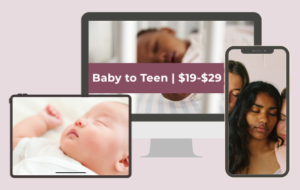If you’re a parent who is concerned about your child’s health, who do you seek advice from? Most parents turn to their child’s pediatrician for expert advice and trusted recommendations, as they should! But when it comes to child sleep issues, a pediatrician can only provide as much advice as they have knowledge. That’s why child sleep consultants work hand in hand with the health expertise of a pediatrician. The extensive knowledge in sleep biology of a consultant, compliments the general information of a pediatrician.
Generalists vs Specialists
Pediatricians are usually the first resource consulted when any health concern arises with a child. They have a general expertise in children’s health and wellness. Pediatricians can provide information and recommendations as to how to treat and manage an issue. They can also point you in the right direction if the concern is appropriate for a specialist. For example, seeing an Ear Nose and Throat (ENT) specialist if your child is always breathing through their mouth. The degree of training that a specialist, like a child sleep consultant, has in their area of focus is superior. It can be the difference between coping with the issue and resolving the issue. If you aren’t sure, ask your pediatrician if speaking with a child sleep consultant would be a good next step.
Sign Up For Our Newsletter
The frequency of sleep issues in children
Children spend more time asleep than awake during their first 2 years of life. However, 25 to 40% of children experience sleep issues, leaving their parents to seek solutions. In an article published by the APA (American Psychological Association) it was revealed that “2 recent studies show that, on average, pediatricians receive less than 4 hours of sleep-related training across medical school and residency (Mindell et al., 2011; Mindell et al., 2013) . This results in primary care providers being unsure about not only what to ask, but also about what to do if a sleep issue is identified (Faruqui, Khubchandani, Price, Bolyard, & Reddy, 2011).” Many of these sleep issues go unresolved and the article points to the lack of training that most pediatricians receive.
What training does a Certified Child Sleep Consultant have?
All Good Night Sleep Site consultants are graduates of the Family Sleep Institute. FSI is the leading child sleep certification program in the world, requiring 3 times more training than other sleep programs. The certification is rigorous 16 week program of in class education, assignments and required reading. Classes are followed by live volunteer case assignments, and 16 weeks of mentorship with FSI faculty and alumni. Each year, grads must stay continuously educated in the field as per membership requirements. This means taking additional training to stay up to date with the latest knowledge in child sleep health.
The curriculum is based on biology and evidence based methods. Here is some of what is covered:⠀
- Establishing Healthy Sleep Habits ⠀
- Biological Sleep Milestones⠀
- Safe Sleep Environments Preventing SIDS (Sudden infant death syndrome) ⠀
- Lactation
- Common Sleeping Challenges and Solutions
- Toddler behaviour ⠀
- Working with Twins⠀
- Working with Families of Children With Special Needs⠀
- Medical Conditions which Affect Sleep⠀
How sleep affects your child’s health
When it comes to your child’s health, nothing is more important than getting the right expert advice and recommendation. Proper sleep is critical to the health and wellbeing of your child.
When it comes to your child’s health, nothing is more important than getting the right expert advice and recommendation. Proper sleep is critical to the health and wellbeing of your child.
“Deficient or disrupted sleep in youth has been linked with a number of negative outcomes, including difficulties with concentration and learning, inattention and impulsivity, poor emotional regulation and increased risk for depression, as well as more accidents and risk taking behaviors. Recent studies also show that sleep deficiency is related to physical health outcomes, including hypertension, hypercholesterolemia, insulin resistance and obesity. Furthermore, children’s sleep issues have a significant impact on parental sleep and daytime functioning, which in turn can impact parent mood, marital quality, family functioning, work performance and general parenting”, reports the American Psychological Association.
We encourage all parents to do their research when it comes to deciding who to trust with their children’s sleep, because sleep is everything.
Source: https://www.apa.org/pi/families/resources/primary-care/sleep











